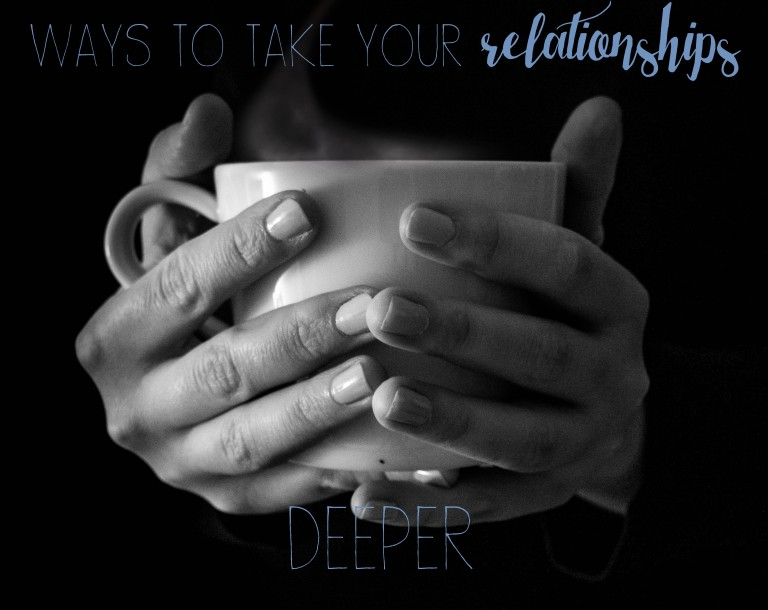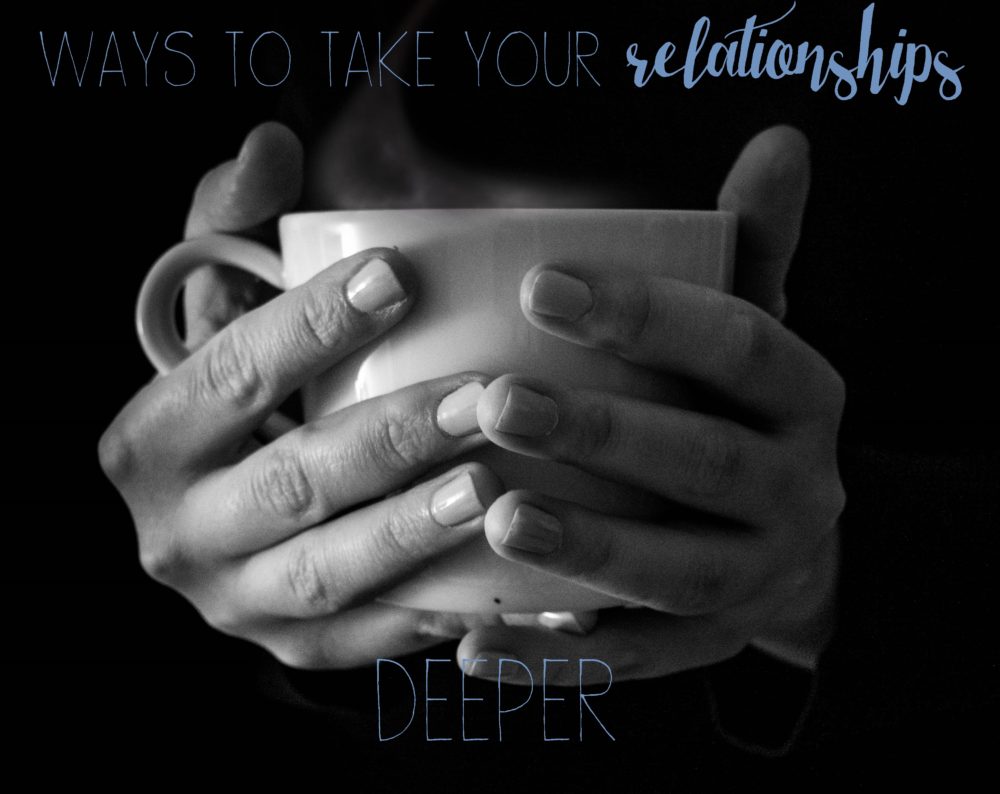- Tell the whole truth. Vulnerability takes so much security—first, in our vertical relationship with God. I find a direct correlation between my ability to be transparent with other people and my own humility. Honestly, I used to wait for others to pursue me as a display of their concern for me—and sometimes still do. But I need to acknowledge my own need for others to shoulder what I’m carrying (Galatians 6:1); that it’s not good for me to be alone (Genesis 2:18); that I can’t say, “I don’t need you!” to people of my choosing (1 Corinthians 12:21). Now, Jesus had his own concentric circles of friendship–his intimate three, then twelve disciples, then 72, then the crowds. I’m not saying we trust anyone with our most intimate, painful areas. But friendship is rewarding proportional to the courage and intimacy we’re willing to extend; and the bar that Jesus set–love one another as I have loved you–is one that will take the rest of my life to pursue.
- Be relentless. Not in a “I’m your friendly neighborhood stalker” sort of way, but in a kind of way that “shepherd[s] the flock of God that is among you.” I don’t know that society as it currently stands is set up well for true community–for relationships that go the distance when it’s inconvenient, unhappy, sweaty, and generally uncomfortable. Thanks to Facebook we may still be in touch with people from high school—but we may also have 580 “friends” who assume they know us because of our status updates. I’ve got to be willing to initiate, to crowd my calendar with people rather than just events…to be secure enough that friendships aren’t all about yours truly.
- Be aggressive about forgiveness—in your own heart. I’m amazed at how petty I can get about small “insults” from a friend, ways he or she seemed thoughtless and didn’t read my mind, things that seemed “obvious” because of my unique makeup (which is, ahem, why I need a friend in the first place), ways that someone didn’t return a kindness. Friendships squeeze me into the discipline of returning a blessing for an insult; of loving extravagantly (click here for ways you may be cannibalizing your own conflicts). I am fascinated by this thought from Ligon Duncan that tells me a lot about relationships in general:
People don’t fall out of love. They fall out of repentance and forgiveness.
Tell us: How do you draw your relationships deeper?









2 Comments
Seth Kempf - 9 years ago
I’ve had to do a lot of regular self counsel (in a Ps. 42-43 kind of way) with this for all those times when I don’t want to do the hard work of pursuing a relationship that feels a bit more difficult or just tiring. “Press in, press in, press in, love and press in.” Looking at the way relationships are described in Scripture (the greatest commandment, the one “like it,” and the various “one anothers”), there’s a true call to, in God’s strength, give it all we’ve got in this area.
Janel - 9 years ago
I’ll have to look up those Psalms! I feel this, too–more so when I’m exhausted from “ministry” that I wish didn’t subtract from my energy for relationships, and just the ability think about how to press in. You say it so well, Seth: There’s not really an option not to give it all we’ve got here!